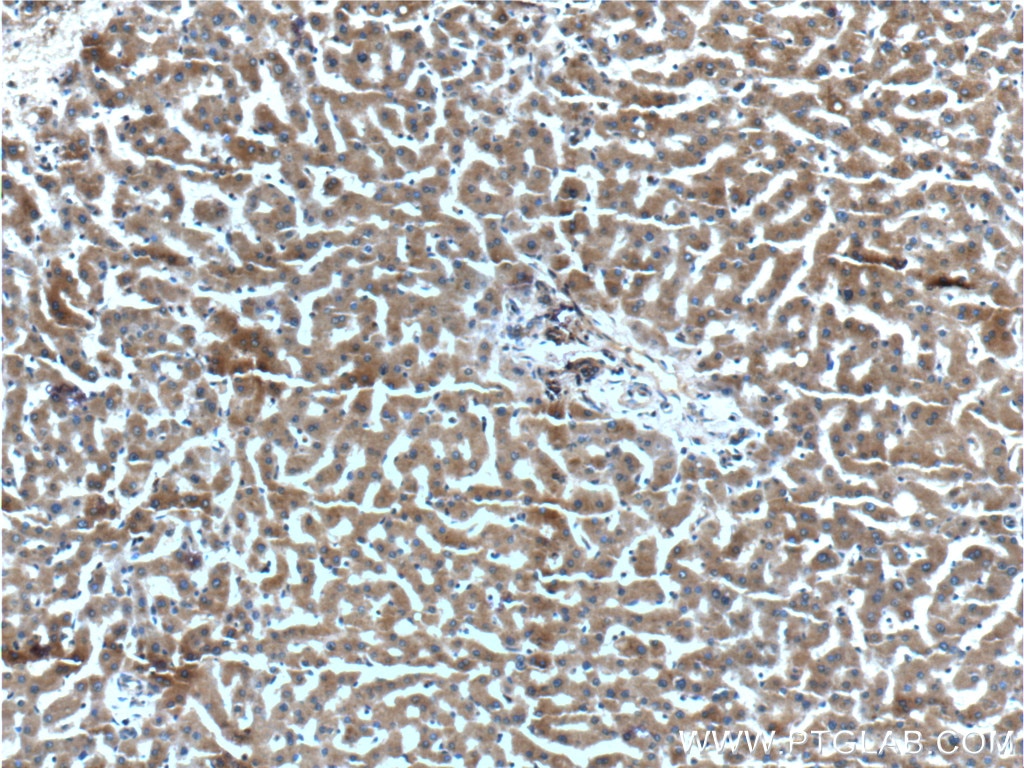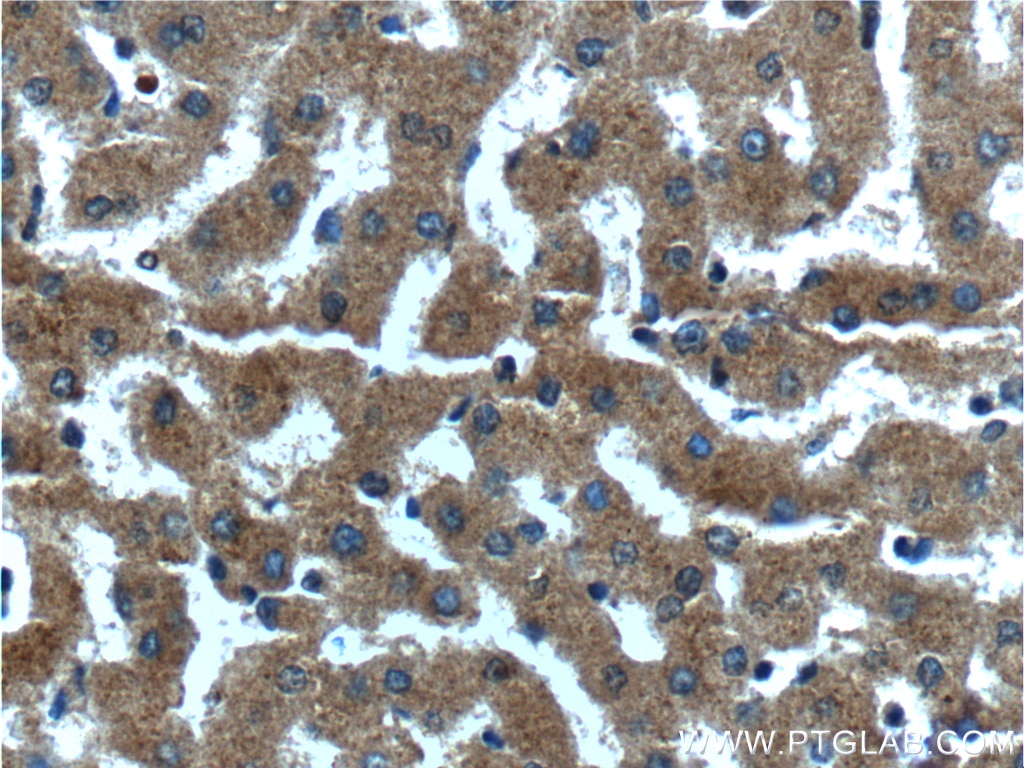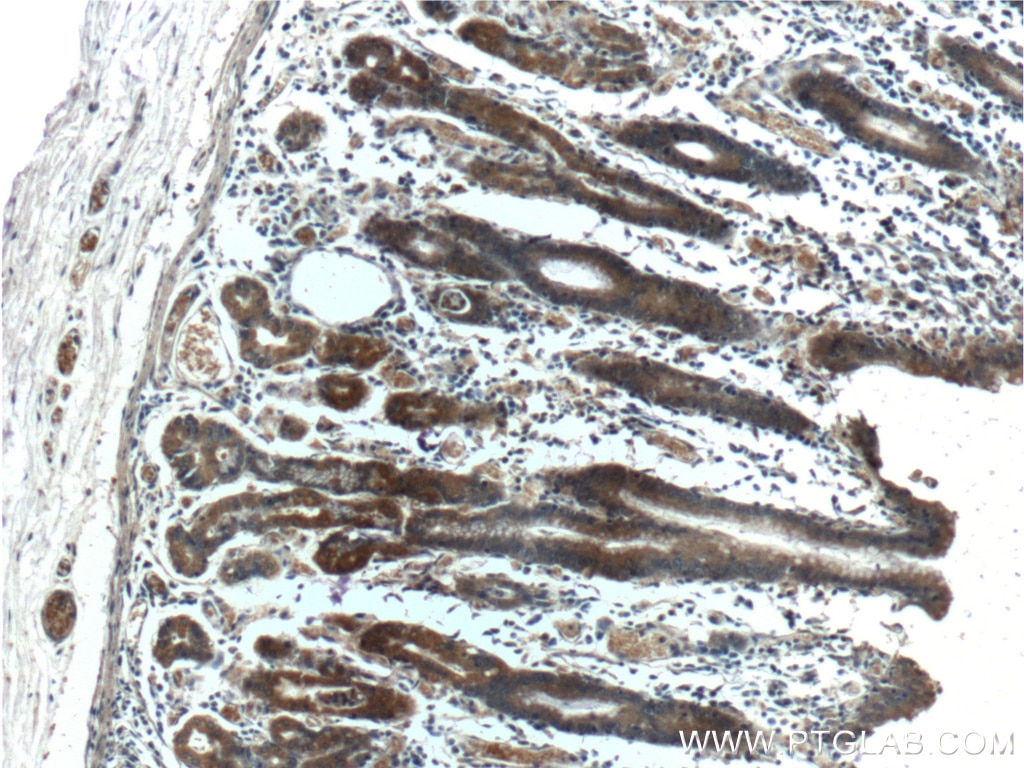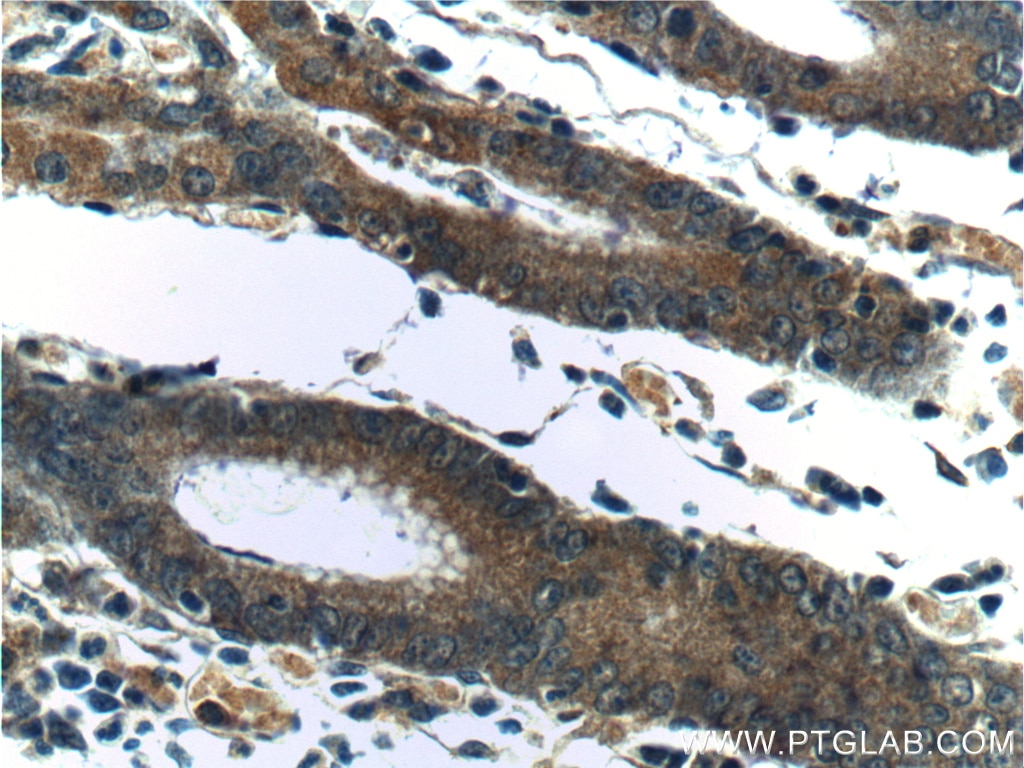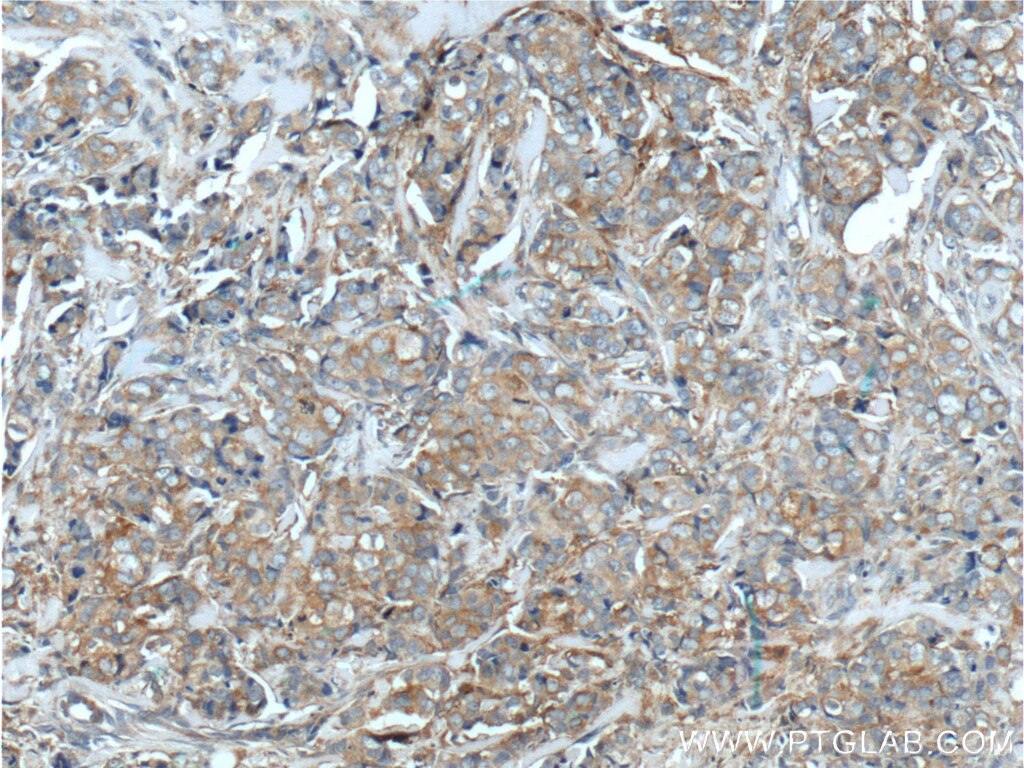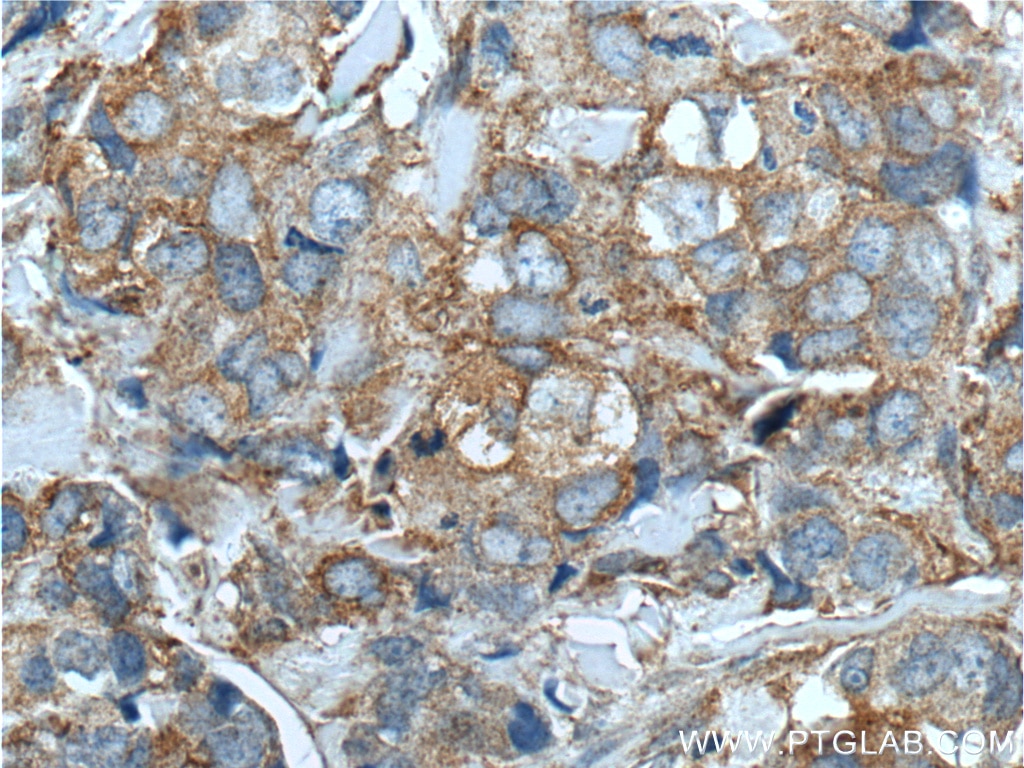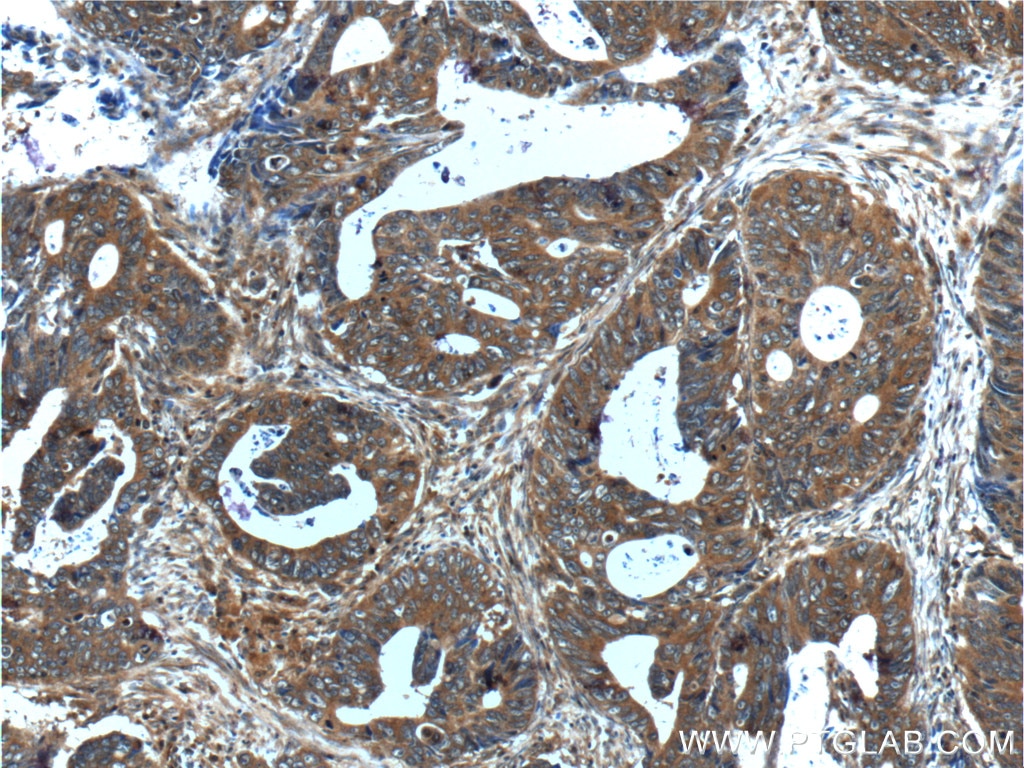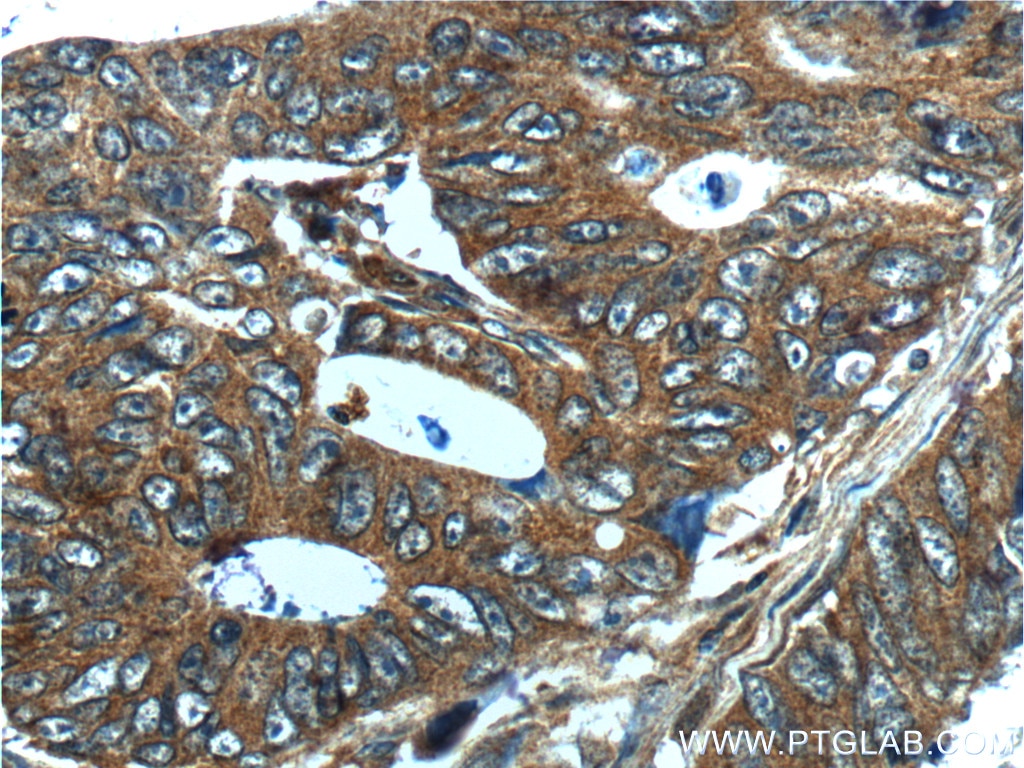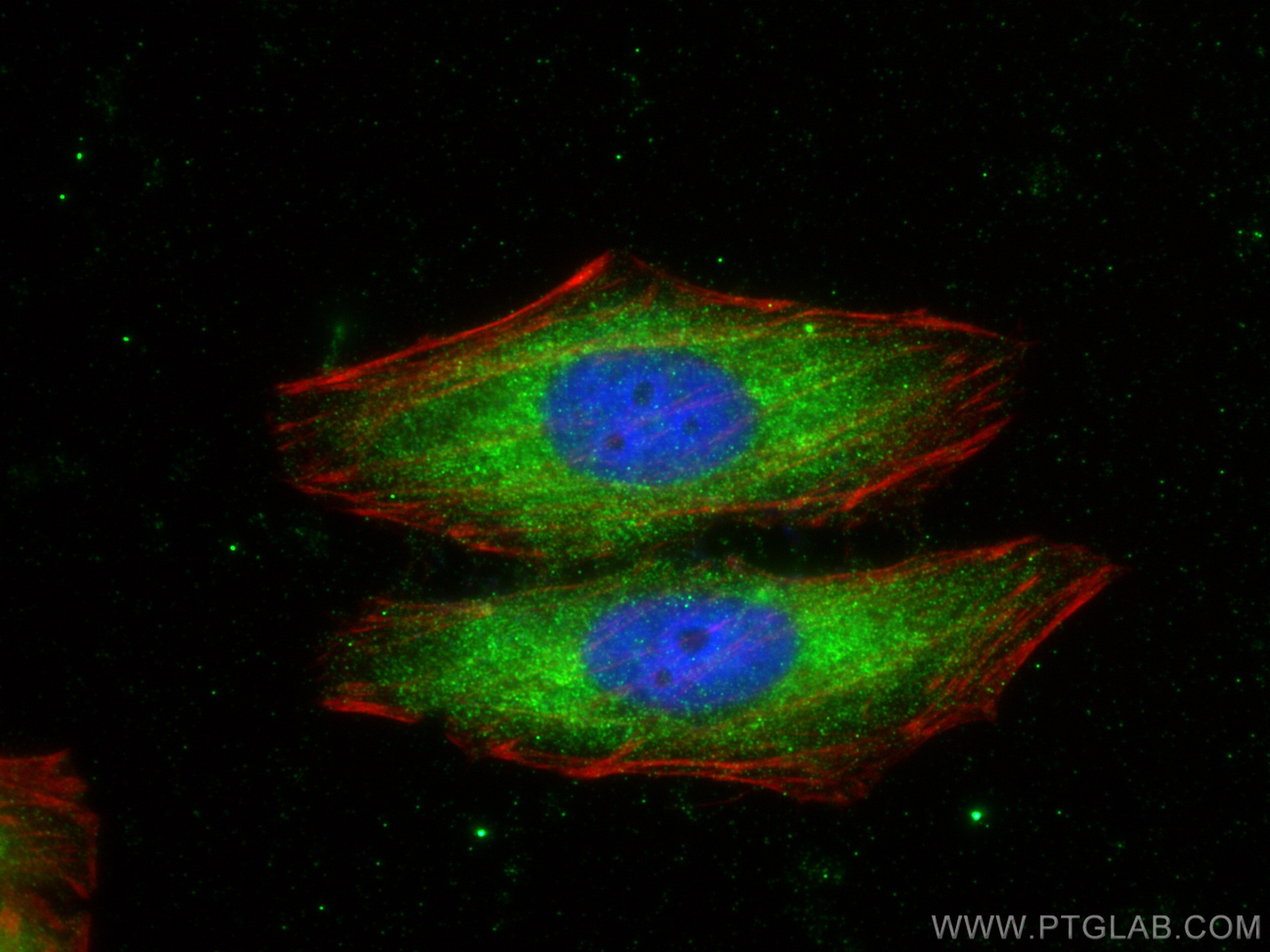- Featured Product
- KD/KO Validated
CXCL14 Polyklonaler Antikörper
CXCL14 Polyklonal Antikörper für IHC, IF/ICC, ELISA
Wirt / Isotyp
Kaninchen / IgG
Getestete Reaktivität
human und mehr (1)
Anwendung
IHC, IF/ICC, ELISA
Konjugation
Unkonjugiert
Kat-Nr. : 10468-1-AP
Synonyme
Geprüfte Anwendungen
| Erfolgreiche Detektion in IHC | humanes Lebergewebe, humanes Mammakarzinomgewebe, humanes Kolonkarzinomgewebe, humanes Magengewebe Hinweis: Antigendemaskierung mit TE-Puffer pH 9,0 empfohlen. (*) Wahlweise kann die Antigendemaskierung auch mit Citratpuffer pH 6,0 erfolgen. |
| Erfolgreiche Detektion in IF/ICC | HepG2-Zellen |
Empfohlene Verdünnung
| Anwendung | Verdünnung |
|---|---|
| Immunhistochemie (IHC) | IHC : 1:50-1:500 |
| Immunfluoreszenz (IF)/ICC | IF/ICC : 1:200-1:800 |
| It is recommended that this reagent should be titrated in each testing system to obtain optimal results. | |
| Sample-dependent, check data in validation data gallery | |
Veröffentlichte Anwendungen
| KD/KO | See 2 publications below |
| IHC | See 5 publications below |
| IF | See 4 publications below |
Produktinformation
10468-1-AP bindet in IHC, IF/ICC, ELISA CXCL14 und zeigt Reaktivität mit human
| Getestete Reaktivität | human |
| In Publikationen genannte Reaktivität | human, Maus |
| Wirt / Isotyp | Kaninchen / IgG |
| Klonalität | Polyklonal |
| Typ | Antikörper |
| Immunogen | CXCL14 fusion protein Ag0747 |
| Vollständiger Name | chemokine (C-X-C motif) ligand 14 |
| Berechnetes Molekulargewicht | 13 kDa |
| Beobachtetes Molekulargewicht | 13 kDa |
| GenBank-Zugangsnummer | BC003513 |
| Gene symbol | CXCL14 |
| Gene ID (NCBI) | 9547 |
| Konjugation | Unkonjugiert |
| Form | Liquid |
| Reinigungsmethode | Antigen-Affinitätsreinigung |
| Lagerungspuffer | PBS with 0.02% sodium azide and 50% glycerol |
| Lagerungsbedingungen | Bei -20°C lagern. Nach dem Versand ein Jahr lang stabil Aliquotieren ist bei -20oC Lagerung nicht notwendig. 20ul Größen enthalten 0,1% BSA. |
Hintergrundinformationen
CXCL 14 (C-X-C motif chemokine 14) is a small inducible cytokine, and may be a potent chemoattractant for neutrophils. CXCL14 possesses a destruction box (D-box) domain which acts as a recognition signal for degradation via the ubiquitin-proteasome pathway. CXCL14 is widely expressed in normal tissues including heart, brain, placenta, lung, liver, skeletal muscle, kidney and pancreas without inflammatory stimuli. It is dispensable for dendritic cell function and localization within peripheral tissues. In localized prostate cancer, CXCL14 mRNA was significantly upregulated and positively correlated with Gleason score.
Protokolle
| PRODUKTSPEZIFISCHE PROTOKOLLE | |
|---|---|
| IHC protocol for CXCL14 antibody 10468-1-AP | Protokoll herunterladenl |
| IF protocol for CXCL14 antibody 10468-1-AP | Protokoll herunterladen |
| STANDARD-PROTOKOLLE | |
|---|---|
| Klicken Sie hier, um unsere Standardprotokolle anzuzeigen |
Publikationen
| Species | Application | Title |
|---|---|---|
Transl Res Novel role of CXCL14 in modulating STAR expression in luteinized granulosa cells: implication for progesterone synthesis in PCOS patients. | ||
Dis Model Mech Loss of Ranbp2 in motor neurons causes the disruption of nucleocytoplasmic and chemokine signaling and proteostasis of hnRNPH3 and Mmp28, and the development of amyotrophic lateral sclerosis (ALS)-like syndromes. | ||
Front Pharmacol Aberrant ROS Mediate Cell Cycle and Motility in Colorectal Cancer Cells Through an Oncogenic CXCL14 Signaling Pathway.
| ||
Int Immunopharmacol Comprehensive analysis of the expression and prognostic value of CXC chemokines in colorectal cancer. | ||
Thyroid Iodide-induced chemokines and genes related to immunological function in cultured human thyroid follicles in the presence of thyrotropin. | ||
J Transl Med Chemokine CXCL14 is associated with prognosis in patients with colorectal carcinoma after curative resection.
|
